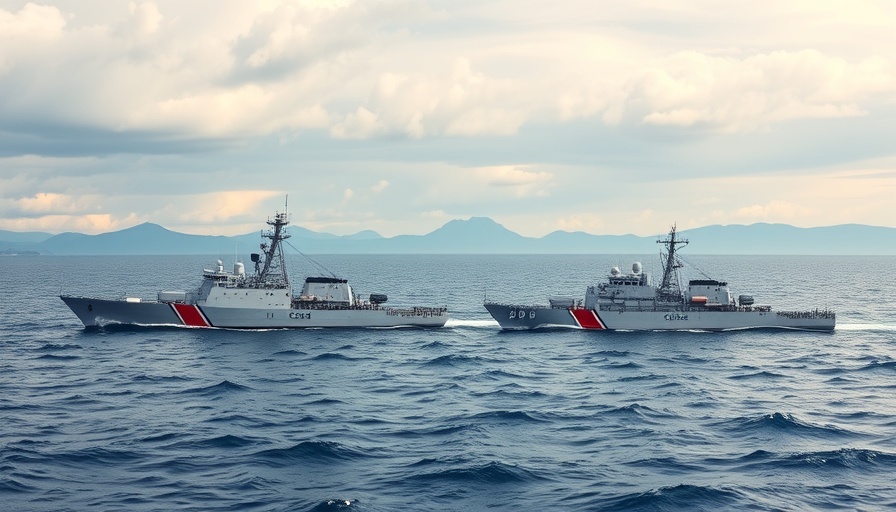
Strengthening Maritime Alliances: The Role of the Coast Guards
The recent joint operations conducted by the US Coast Guard Cutter Stratton with Japanese and Philippine Coast Guards highlight a significant advancement in trilateral maritime cooperation. For the first time, this exercise took place outside Philippine territorial waters in Kagoshima, Japan, symbolizing a deepening partnership among the three nations. Such collaborations are crucial for enhancing operational capabilities to ensure maritime safety and security within the busy Indo-Pacific region.
Highlighting Collaborative Efforts
During this operation, which included both in-port engagements and at-sea exercises, the crews from Stratton, Japan Coast Guard, and Philippine Coast Guard participated in various activities aimed at fostering camaraderie and learning. Meetings with key Japanese officials and tours of Japan Coast Guard facilities formed the backbone of these engagements. “This joint operation reinforces the close partnership between the United States, Japan, and the Philippines,” proclaimed Captain Brian Krautler, underscoring the importance of unity in addressing maritime security challenges.
SAREX: A Testament to Preparedness
The search-and-rescue exercise (SAREX), which simulated emergency response scenarios like man overboard situations, showcased each vessel's capability and readiness. Using innovative technologies like the ScanEagle unmanned aerial system for searching, along with a cooperative firefighting drill, the exercise not only strengthened skills but also demonstrated the ability to operate effectively in unexpected circumstances. These training scenarios are invaluable as they prepare the teams for real-life missions where collaboration can mean the difference between success and failure.
Looking Ahead: Future Opportunities
As global maritime threats evolve, the importance of these multinational exercises will undoubtedly grow. They promote not just immediate readiness but also long-term strategic cooperation. The insights gained from such collaborative firefighting and rescue operations can inspire further joint drills and information sharing, enhancing overall maritime safety across borders.
 Add Row
Add Row  Add
Add 




Write A Comment